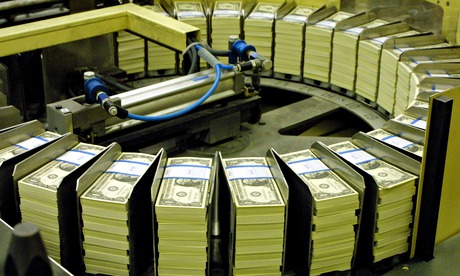
A good month for Amazon's fledgling publishing business – the imaginatively-titled Amazon Publishing – just got better, after the imprint won the rights to Cath Quinn's historical thriller The Thief Taker with a "significant advance".
Quinn has an established track record as a self-published author, selling 150,000 copies in the US and UK last year. Amazon has come out the victor in a four-way auction for her new novel of Black Death London despite admitting to Quinn's agent their "focus was on the Amazon ecosystem" as opposed to high-street bookshops, according to the Bookseller.
This demonstration of publishing muscle comes hot on the heels of Amazon's first ever No 1 ebook bestseller. William Lashner's latest novel, the Kindle-only thriller The Barkeep, topped last week's Digital Book World ebook bestseller chart with two more Amazon Publishing titles coming in at four and 11. Not bad for a company which George Packer characterises as having no real interest in books.
But why would an author who wants to break out into "the true mass market" limit herself to the Amazon universe? It seems that it's all about the future, with Amazon offering terms for digital royalties which Quinn's agent described as "decidedly more generous" than those offered by traditional publishers.
According to new figures from the self-publishing champion Hugh Howey, ebooks may account for as much as 90% of current sales in bestselling genre fiction and signing with Amazon unleashes the shopping site's "incredible ability to market their own works". Amazon Publishing puts out only 4% of bestselling genre ebooks, but those titles manage to snag 15% of daily sales. As for the big five, they're converting 28% of these titles into just 34% of daily unit sales.
The missing slice of this pie is made up of self-published novels, which Howey suggests represent a whopping 39% of ebook daily sales by volume and a quarter by value. With traditional publishers offering electronic royalties at only 25% and Amazon offering self-published authors electronic royalties at 70%, perhaps the strongest competitor Amazon Publishing will find itself up against is the idea of the author going it alone.

